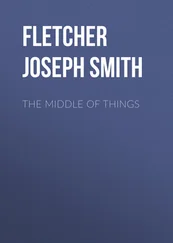IT WAS A HUMBLE BEDROOM. With no pictures on the walls, no calendar, no mirror. It was a bedroom of white walls. While the brothers were being brought from the oil press the neighbor women, weaving through the cook’s grief, removed the crib from the bedroom, changed the sheets on the bed, and placed as many chairs around it as they could find and that would fit in the room. The women marveled at the size of the bed, and it took three of them to tuck in the sheets and the bedspread. The women moved like ants around the widowed cook, who was lost in the far reaches of her mourning, where she would remain during the watch and the funeral. The widowed cook, Elias, and the deceased Moisés passed the night alone and in silence. When morning broke, their skin looked duller, as if coated by a layer of dust that was a layer of sorrow. And with the day’s arrival the first women arrived. Little by little their number swelled, women dressed in black who whispered and looked on with pity. Elias wept until midmorning. Then the tears rolling down his cheeks in meandering paths stopped. His eyes dried, and his face was one of silent, steadfast suffering. When the first men arrived it was already past midmorning, the bedroom was full of women, and Elias was wrapped in silence. In pairs or alone, the men entered with caps in hand, looked at Moisés for a suspended moment, said my heartfelt condolences, my heartfelt condolences, and went out. On the street, near the door, the men stood around in an expanding circle and rolled cigarettes glued with their tongues, pondering their own death while they smoked them, and someone said that’s life.
No one from the town had taken the news to the Mount of Olives, but old Gabriel woke up suddenly with a pain in his chest, and the first thing he thought of was Moisés. He solemnly lit the logs in the fireplace with a pinecone. He drank his coffee sitting next to the fire, watching the feminine dance of the flames and waiting for daybreak. The plants were beginning to wake up when old Gabriel set out on the road into town. His mind skirted a path that was full of shadows because full of doubts. We never know all there is to know, he thought. That morning was hiding something from him. He walked through the quiet of the light while repeating to himself: what happened? What on earth happened? His steady gaze saw only the uncertainty that preoccupied him, the certainty that something had happened about which he knew nothing. He walked with quick steps, like scythes cutting swaths of grass. When he’d gone halfway, a cyclone of birds swirled in the sky overhead, but he didn’t notice. All the birds flying over the town and the surrounding fields came together in that black-stippled blanket that waved in the sky, held up by thousands of fragile bodies and a rustle of wings. Old Gabriel continued in his blind determination until he saw the town’s first house. At that moment the birds all swooped down on him, and despite the resistance of his arms and feet, the sparrows, pigeons, thrushes, swallows, and the other birds wrapped him in a thick cloud and lifted him into the air, into the sky. Flying nearly as high as the clouds, had there been clouds, they soon covered the distance back to the farmstead and set old Gabriel down at his front door. As he watched the birds scatter in the sky and he helplessly extended his arms toward the earth, he realized, with frustration, that there was nothing he could decide. Trapped in his human condition, he fetched his hoe and spent the day in his garden.
By early afternoon there were already many men in front of the door. The heat was excruciating, and the men took cover under a bit of shade. Inside, to keep it cool, one of the shutters on the window had been closed, and the other one half closed. The women, in this half-light, sat in the chairs that lined the wall, while the widowed cook sat in a chair closer to the bed. Elias was standing, with his right arm resting on his dead brother. No one had the courage to propose separating the brothers or even to mention the matter. Whoever saw the two brothers saw two dead men; and the mourning didn’t increase, the grief became no greater, when in the late afternoon Elias collapsed on the bed. Dying, for Elias, was the depletion of all his strength. Dying was the unbearable extreme of an absolute exhaustion. An immeasurable silence. An immeasurable nostalgia. After a black moment in everyone’s heart, one of the women went outside to call in two men, who stretched Elias out at his brother’s side. In death they had the same face, the same color, the same expression. When night had completely darkened the room, someone lit a kerosene lamp, and the women began to leave. Their shadows passed over the brothers’ dead bodies, taking a little of that sad room to where they were going. Seven women remained. It wasn’t cold, but all of them wore black shawls over their shoulders. It was a very long night. More years than make a life went by on that night. When the tears finally stopped in the eyes of the widowed cook, the approaching morning could already be felt. And it was in an even more painful silence, a silence of her wanting to but not being able to cry, a silence of her feeling only a deep darkness: darkness under darkness under darkness; it was in a black silence that the widowed cook felt the first light of dawn. And once more the women and men arrived. And the widowed cook didn’t react to the approaching sound of the wagon that would take the corpses to the cemetery. She didn’t react when the men, lugging a huge coffin, entered the bedroom and placed the brothers inside it, side by side. They closed the lid and, with great difficulty, passed through the kitchen to the street and hoisted the coffin with the brothers onto the funeral wagon. Smaller than other wagons, it was painted shiny black and was pulled by two men. Under the unusual weight of the twin-sized coffin, the springs screeched with their lack of flexibility. The widowed cook got up from her chair with the help of two women and, disconsolate and lifeless, made the long walk to the cemetery. And every street, everything she saw, reminded her of the brothers, of the happiest year of her life, of the little house she’d loved, of the life she’d wanted to build, of the hours she’d spent cooking for the brothers and imagining their smiles when they arrived, everything reminded her of the plans she’d made for the little girl, whom they would never see as a grown woman. The widowed cook was very old and had nothing. When they reached the cemetery, the sun was a dull reflection of itself in the sky. Next to the grave, the coffin was reopened. The brothers’ faces, their best suits. Then, dirt. Shovelfuls of dirt that made, first, the sound of metal blades stabbing a mound of dirt and then, once hurled into the air, the unmistakable sound of dirt when it hits the wood of a coffin, with much of the memory of those corpses that were once people being buried forever. Surrounded by women who helped her but all alone, the widowed cook returned to the town. They took her to the house of the neighbor who was watching the little girl. The widowed cook looked at the baby, who couldn’t understand, and tried with very sincere eyes to tell her everything. And she hugged the baby with all her might before losing her mind.
JOSÉ’S SHEEPDOG WAS LYING down, neck raised, in a noble pose and with a serene expression, ears stretched out, eyes closed, as if she were feeling the softness of the breeze. And she was feeling the softness of the breeze: a delicate wall, a very thin veil that passed by imperceptibly, the memory of a sheet of glass slowly crossing the plain. In the shade, half dozing, the sheep chewed on the dry grass in the particular way sheep chew: by moving their jaws horizontally, in opposite directions. José stood still on his feet, chest leaning against his staff, musing. He’d slept badly the night before, tortured by strange ideas. Lying in bed, his eyes open to the darkness, he listened to his wife’s breathing and to the quicker breathing of their son, and he thought of his wife and of the giant, he thought of his wife embracing the giant and of the giant abusing her, over and over, over and over. He suddenly envisioned his wife with the giant, thinking: it can’t be true. He took momentary comfort in this thought, but soon his wife’s face and the giant’s face rematerialized in his mind, the pure body of his wife mixed up with the repugnant body of the giant. Once, just once, he reached the point of thinking: and if the baby isn’t my son? But he felt a very deep pit in his chest, a seemingly bottomless pit of fear, and immediately he thought: it can’t be true. A profound horror prevented him from returning to that idea, but within him lurked the shadow: the black, almost hazy outline of that thought: the constant, inexorable presence of a dagger he wanted to pull out of his heart. Certainty is made of many doubts, a certainty is made of a thousand times a thousand doubts, and nothing is worse than a doubt, thought José. Next to the sheep, with his chest leaning against the staff, he mused about such things as this. And the afternoon lent itself to musing. The hottest part of the day was dissolving more slowly than the eyes of men could see. The plains were becoming more endless.
Читать дальше












